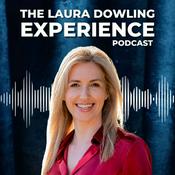The Autism Mums Podcast

39 episodes

Autism and Challenging Behaviour with Carl Draper (Part 1)
16/12/2025 | 22 mins.
In this week’s episode of The Autism Mums Podcast, we welcome back Carl Draper for part one of a two-part conversation.His last episode, learning to hear a child who doesn't speak, sparked so many questions from listeners, that we invited Carl back to talk more about the topic of challenging behaviours and autism. In this first part, Carl shares his personal experiences as a parent, how his understanding of behaviour has changed over time, and why unmet needs and stress responses are so often misunderstood.BiographyCarl Draper was born in a North Nottinghamshire mining village and moved to Bournemouth at 19, where he served as a beach lifeguard and discovered his love for surfing. Accepted into the Royal Marines, his plans changed after a serious leg injury during a heroic rescue, an event that earned him a Local Hero Award and a feature on BBC’s 999 Rescue. He later became RNLI head trainer for lifeguards across Dorset, then served over a decade with Dorset Ambulance Service. Shifting to education, he trained firefighters and police nationwide before retraining as a mental health nurse. Carl is currently studying at Bournemouth University. In 2015, he founded Waveslider, winning the Bournemouth Tourism Award in 2017, and began documenting life with his son Bodhi in 2020.Key TakeawaysEmotional regulation in parents plays a crucial role in reducing escalationChallenging behaviour is often a stress response linked to unmet needsChanges in routine and adult stress can significantly impact a child’s ability to copeA balance between boundaries and flexibility helps create emotional safetyChildren learn regulation by observing the behaviour of those around themLetting go of social judgement and outdated expectations allows families to parent with confidenceConnect with Carl DraperFollow Carl’s journey with his son Bodhi on the Waverslider Photography Facebook PageFollow Carl on InstagramConnect with The Autism Mumshttps://theautismmums.com/Follow us on Instagram https://www.instagram.com/theautismmumsFollow us on Facebook https://www.facebook.com/theautismmumsTranscriptVictoria Bennion: [00:00:00] Today we're joined once again by ourfriend Carl Draper, who many of you will remember from episode nine. For thosewho don't know Carl, he is currently training to be a mental health nurse andis the founder of Wave Slider, where he shares his brilliant photographs anddocuments life with his son Bodhi.Victoria Bennion:Frank Bodie's Assistance Dog is also a regular on wave slider. Carl's lastappearance on the podcast really struck a chord, and after that episode wentlive, he received an overwhelming number of messages from parents and carerswanting to know more about how he supports his son through moments of distress.Victoria Bennion: Andwhat's often labeled as challenging behavior. So today, Carl is back with us totalk honestly and openly about exactly that we could talk to Carl for hours. Sowe've split our conversation into two episodes. In this first part, Carl shareshis personal journey as a parent. How his understanding of [00:01:00] behavior has changed over time.Victoria Bennion: Thepowerful impact of learning to regulate his own emotions and what it reallylooks like to meet chaos...

Rebuilding Relationships While Supporting Neurodivergent Children with Carla Wainwright
09/12/2025 | 18 mins.
In today’s episode, of The Autism Mums Podcast, Victoria is hosting solo as Nat is home with an unwell little one. She’s joined by the wonderful Carla Wainwright, a Holistic Wellness Coach and Relationship Transformation specialist who supports parents and couples navigating the stress, overwhelm, and emotional load that can come when a child’s health or development needs extra support.Carla Wainwright's BiographyCarla Wainwright is a Holistic Wellness Coach and Relationship Transformation specialist who helps parents and couples navigate the stress, disconnection, and overwhelm that can come when a child’s health or development needs extra support. With a graduate degree in biological sciences, a 4-year practitioner diploma in Homeopathy and Heilkunst, and over 25 years as an embodied yoga teacher, Carla blends science, somatic practice, and coaching to guide couples in rekindling intimacy, deepening connection, and restoring shared purpose. Her compassionate, practical approach creates space for parents to thrive - both individually and together—while walking alongside their child’s unique health journey.Key TakeawaysMany relationship challenges stem from the fact that none of us were taught how to stay connected when life feels overwhelming.Parenting a neurodivergent or high-needs child can magnify existing patterns of disconnection within a couple.Emotional exhaustion and nervous system overload often show up as distance, irritability, or feeling like “roommates” instead of partners.Co-regulation—calming your nervous systems together—is often the first gentle step toward rebuilding intimacy.Small, simple practices like sitting side-by-side, holding hands, or breathing together can create emotional safety.Clear and compassionate communication, especially using “I” language, helps both people feel heard rather than blamed.Loving, well-expressed boundaries can strengthen a relationship rather than push partners apart.Prioritising your relationship supports the whole householdUnderstanding each partner’s unique coping style can ease misunderstandings and reduce conflict.The path back to connection starts with nervous system regulation—first for yourself, and then with each other.Connect with CarlaInstagram: https://www.instagram.com/carlawainwright/ Facebook: https://www.facebook.com/CarlaWainwrightCreatrix/Website: https://www.carlawainwright.com/Free Gift: The Connected Way Forward – Carla’s free 3-minute connection practice for couples, designed to gently rebuild closeness even when life feels overwhelminghttps://www.carlawainwright.com/connected-way-forward Connect with The Autism MumsWebsite https://theautismmums.com/Follow us on Instagram https://www.instagram.com/theautismmumsFollow us on Facebook https://www.facebook.com/theautismmumsTranscriptRebuilding Relationships While Supporting NeurodivergentChildren with Carla Wainwright[00:00:00] Victoria Bennion:Hello and welcome. It's Victoria and I'm on my own today as Nat has an illchild, but I'm grateful to...

Managing Christmas Challenges for Neurodivergent Families
02/12/2025 | 23 mins.
In this week's episode of The Autism Mums Podcast we're talking about something that many families find really tough, the Christmas season. It's a time that's meant to feel magical, but for many of our autistic children, it can actually be really overwhelming, unpredictable, and stressful.Key TakeawaysUnderstanding Christmas Overwhelm: Many autistic children find the Christmas season stressful due to changes in routine and expectations.Addressing Pre-Christmas Challenges: Difficulties can arise well before Christmas Day, with alterations in school activities and the build-up of holiday expectations.Communication and Preparation: Clear communication about what to expect can help reduce anxiety in children. Discussing plans with them beforehand is crucial.Adjusting Traditions: Families may wish to consider adapting their traditions to better suit their child's needs, such as avoiding large gatherings or adjusting meal times.Managing Social Expectations: The pressure to participate in Christmas events, such as school plays and gatherings, can cause significant distress for neurodivergent children.Sensory Sensitivities: Decorations and festive environments can be overwhelming, emphasising the need for a personalised approach to celebrations.Flexibility on Christmas Day: It can be helpful to allow for breaks and personal space on Christmas Day, adapting activities to match children's comfort levels.Creating a Supportive Environment: Setting up a calm and understanding atmosphere at home can make the season more enjoyable for neurodivergent family members.Encouraging Open Dialogue: Encouraging children to express their needs, such as using visual aids to communicate comfort levels, can help.Finding Joy in Simplicity: Embracing a less traditional Christmas that meets individual family needs can be just as fulfilling as adhering to societal expectations.Connect with The Autism MumsWebsite – https://theautismmums.com/Follow us on Instagram https://www.instagram.com/theautismmumsFollow us on TikTok https://www.tiktok.com/@theautismmumsFollow us on Facebook https://www.facebook.com/theautismmumsTranscriptVictoriaBennion: [00:00:00] Todaywe're talking about something that many families find really tough.It's the Christmas season. It's a time that's meant to feel magical,but for many of our autistic children, it can actually be reallyoverwhelming, unpredictable, and stressful.NatalieTealdi: We're gonna talk through some of the commonchallenges that come long before Christmas Day. What happens on theday itself, and what we've learned works for our families. Hopefullyit helps you feel a little more understood and a little moresupported this year.VictoriaBennion: For many of our children, the struggles start waybefore Christmas day when everything starts to change. Routines aredifferent expectations, the look and the feel of a school. For one ofmy children, these struggles were really apparent from preschool ageand they had a lot of trauma to work through in subsequent years of,it sounds awful, doesn't...

Charmaine Champ: Supporting Neurodivergent Children with Toileting Challenges
25/11/2025 | 27 mins.
Toileting challenges can feel overwhelming for parents of neurodivergent children, especially when withholding, accidents, or anxiety become part of everyday life. In this episode, we’re joined by the compassionate and highly experienced Charmaine Champ, who brings over 30 years of professional and lived experience to help families understand what’s really happening inside their child’s body. Charmaine shares why toileting can feel so hard, the small steps that make progress possible, and the gentle, practical strategies that help children feel safe and confident. BiographyCharmaine Champ is a Registered Nurse in Learning Disability (RNLD), Community Nurse Specialist (BSc Hons), Queen’s Nursing Institute Award winner, and a Continence, Sleep, and Understanding Emotions Consultant with over 30 years’ experience supporting children and young people. Drawing on a rich background across clinics, schools, charities, NHS services, and family homes, as well as her own lived experience as a mum in a neurodivergent household, Charmaine specialises in helping children recognise, understand, and respond to the messages their bodies send, so wees and poos can happen comfortably and safely. Her approach blends research-backed guidance with a compassionate, gut-health-informed lens, empowering families, carers, and professionals to support neurodivergent children with toileting, sleep, and emotional regulation in a way that truly meets their individual needs.Key TakeawaysWhy recognising internal body cues matters for understanding a child’s toileting challenges and choosing the right starting point.What withholding really signals and how seeing it as communication—not behaviour—shift the whole approach.Breaking skills into tiny, achievable steps helps children feel safe, confident, and less overwhelmed.Identifying missed signals such as difficulty noticing hunger, fullness, or the need to poo or wee can unlock new progress.Sensory needs play a powerful role, influencing where, when, and how a child feels able to use the toilet.Consistency across home, school, and healthcare builds familiarity and reduces anxiety for neurodivergent children.Medications like Movicol require proper guidance, and understanding dosage and purpose helps parents advocate with clarity.Using visuals and accessible communication makes environments more supporting and inclusive for all children.Understanding the ‘why’ behind toileting patterns gives parents reassurance, confidence, and a clearer sense of direction.Mentioned in This EpisodeBristol Stool Chart Connect with Charmaine ChampFree gift: https://clear-steps-consultancy.newzenler.com/courses/what-to-do-about-poo Email: [email protected] Website: https://www.clearstepsconsultancy.co.uk Facebook: https://www.facebook.com/ContinenceConsultantTrainer Instagram: https://www.instagram.com/continenceconsultanttrainerConnect with The Autism MumsWebsite –

Creating Inclusive Holidays for Neurodivergent Families with Karen Mason
18/11/2025 | 20 mins.
In this week's episode of The Autism Mums Podcast we welcome Karen Mason to the show.BiographyKaren Mason grew up in Hertfordshire with five brothers and built a 35-year career with Bourne Leisure, one of the UK’s leading holiday park operators. Alongside her professional journey, she supported three neurodivergent family members and cared for her father through dementia. These personal experiences highlighted the lack of support for neurodivergent families in holiday parks. Driven to make a difference, Karen founded My Safe Place, combining her industry expertise with her passion for inclusion. Her mission is to create safe, welcoming environments for all families to enjoy accessible and stress-free holidays.Key TakeawaysUnderstanding Personal Experiences: Karen Mason's journey emphasises the importance of personal experiences in shaping her understanding of neurodivergent needs and challenges.The Importance of Inclusion: Karen's mission with My Safe Place focuses on creating inclusive environments that cater specifically to the needs of neurodivergent families.Recognising the Need for Support: The lack of support for neurodivergent families in holiday settings highlights a significant gap in accessibility and understanding within the hospitality industry.Creating Safe Spaces: Karen's work is dedicated to fostering safe, welcoming spaces that allow families to enjoy stress-free holidays together.Industry Expertise Meets Compassion: Karen combines her professional background in the holiday sector with her passion for inclusion, showcasing how expertise can drive meaningful change.Mentioned in This Episodewww.mysafeplacesouthern.co.ukConnect with KarenEmail: [email protected]: @mysafeplacesouthernInstagram: @mysafeplacesouthernukConnect with The Autism MumsWebsite – https://theautismmums.com/Follow us on Instagram https://www.instagram.com/theautismmumsFollow us on Facebook https://www.facebook.com/theautismmumsFollow us on TikTok https://www.tiktok.com/@theautismmumsTranscriptCreating Inclusive Holidays for Neurodivergent Families with Karen MasonVictoria Bennion: [00:00:00] Welcome to the podcast. Karen,Karen Mason: Thanks.Victoria Bennion: could you start by talking us through your journey to starting my safe place please?Karen Mason: Yeah, sure. So I've actually worked in the park industry, holiday parks for over 35 years now, and worked in various roles operationally, managing parks, all sort of jobs. I decided about 18 months ago after an episode supporting my brother and his neurodivergent children that I wanted to pivot where I was in the business and help and encourage parks to become more inclusive when it came to neurodivergent guests.So I literally stopped what I was doing and. Spent now researching, talking to lots of families, working with local charities, and my Safe place evolved. And here we are. We're to ready to [00:01:00] go.Natalie Tealdi: Oh, that's brilliant. Excellent. I understand you pivoted overnight. Your business was it the experience with your nephew that was the catalyst for that?Karen...
More Health & Wellness podcasts
Trending Health & Wellness podcasts
About The Autism Mums Podcast
Welcome to The Autism Mums Podcast — a supportive space for parents and carers navigating life with autistic children. We’re your hosts, Victoria and Natalie, two sisters raising autistic children. We know the joy, the overwhelm and the thousand tiny moments no one else quite gets. That’s why we created this podcast - to offer a safe space, a sense of community, and some gentle encouragement along the way. In each episode, we’ll bring you honest conversations, shared strength, and expert insights to support your journey. Whether you're celebrating a win, managing a meltdown, or just trying to get through the day, you’ll find real talk and real understanding here. You can expect mum to mum chats, practical tips, mini solo moments and conversations with experts. Whether you’re new to this journey or deep in the day-to-day, we see you and we’re walking this path with you.Podcast websiteListen to The Autism Mums Podcast, Just Between Us with Jennifer Zamparelli and many other podcasts from around the world with the radio.net app

Get the free radio.net app
- Stations and podcasts to bookmark
- Stream via Wi-Fi or Bluetooth
- Supports Carplay & Android Auto
- Many other app features
Get the free radio.net app
- Stations and podcasts to bookmark
- Stream via Wi-Fi or Bluetooth
- Supports Carplay & Android Auto
- Many other app features


The Autism Mums Podcast
Scan code,
download the app,
start listening.





































